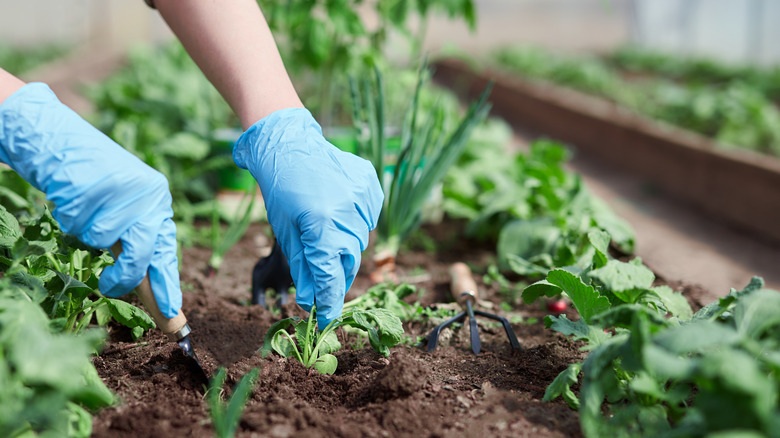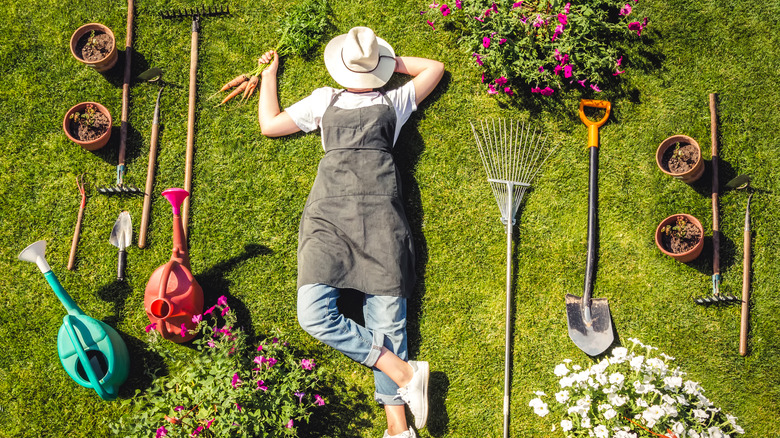Here's What You Need To Know Before You Plant A Garden This Summer
Now that indoor gardening has taken hold as trendy decor, many have decided to try their hand at creating their own green paradise outside. But, before you buy a bunch of seeds, it's wise to do some research to see what you need to successfully grow healthy flowers, vegetables and fruits.
According to The Spruce, you'll need an area of your yard that is grass free to plant your seeds. Instead of killing the grass with chemicals, you can opt for organic ways such as manually removing it or adding mulch to the area, the outlet suggests. Of course, the next step proves slightly more difficult than finding a viable spot to plant your items.
Soil type and quality will make or break your garden. Common soil issues that befall even the most seasoned of gardeners include an out-of-balance pH, problems around a soil's nutrition and using the wrong type. The outlet recommends growing a test plant in your soil before you add all of your seeds to see if the space is optimal for growing your stems. Plus, a soil pH tester will help with this as well. But, compost is a worthy addition for your greenery no matter what phase your plants are at. Indeed, you don't even need a specific compost bin, The Spruce explains, just learn how to layer organic material properly over your plants to help them get the nutrients they need to grow.
Research the types of plants you plan to grow
Of course, different types of plants require various types of soil, care and resources. The Greatist recommends thinking about how much time you want to spend in your garden first. For instance, if you want to grow your favorite vegetables, only to find out they require tons of care and materials, it may be best to start with an easier option. Plus, some plants take up more space than others; if you have constraints around where you can put down roots, you'll want to optimize the space you have by choosing plants that fit.
If you don't have a specific area to grow your stems, the outlet notes that containers work just as well. You'll need to water them more often since they can dry out rather quickly, but this gives you an easy-to-move option that you can keep on your back porch. According to The Spruce, packets of seeds should give you the information you need to determine whether or not the plants you're looking to grow will work in the containers you have. Read the package to find the depth at which your plants will grow, how far apart they should be spaced and more vital information.
Lastly, you'll need to defend against pests and weeds. Making a wall and identifying which types of weeds you're dealing with will be key to keeping your plants growing strong.
While growing a garden requires time, energy and effort, the colors and flavors are well worth it. Just be patient with yourself as you get started.

